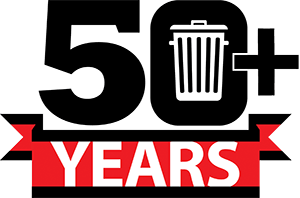Green Cleaning with Homemade Cleaning Supplies
Traditional household cleaning supplies are effective in removing dirt, microscopic organisms and germs. However, these same cleaners we think are helping us are contributing to health issues, added waste in our landfills, and Volatile Organic Compounds (VOC’s). Everyday household items can be used to effectively clean your home without the need to purchase expensive and toxic cleaning supplies.
VOC’s contribute to indoor and outdoor pollution. Short-term exposure to high levels of these compounds can cause nausea, dizziness, headaches, and respiratory and eye irritation. Laboratory animals that have had long-term exposure to VOC’s at high levels developed issues with the kidneys, liver, and nervous system.
VOC levels are typically higher indoors compared to outdoors (up to ten times higher). While opening windows alleviates indoor exposure, this action releases VOC’s into the outdoor air, contributing to smog.
Traditional cleaning agents have been linked to health issues and environmental pollution. Getting creative with some everyday household items and making simple and non-toxic homemade cleaning supplies is an effective and natural alternative to the chemical laden formulas commonly used.
Commonly used as a deodorizer, baking soda can also be used as an abrasive for scouring pots, dishes, tubs, and sinks. Use baking soda to remove sticky goo left behind from stickers or as a teapot and coffee mug stain buster. Need to eliminate the pesky smell of fish, onion or garlic on your kitchen utensils? Splash some baking soda and vinegar in your dishwasher to eliminate the smell, and as an additional bonus, the dishes will be spot free thanks to the vinegar.
Lemon:
Lemon is a wonderful, vibrant scent that is a versatile and effective household cleaning product. Lemon is effective against most household bacteria and may also be used to remove soap scum and hard water deposits in the shower, shine brass and copper, and pose as an insect repellent.
Insects such as spiders, fleas, ants, and even the repulsive cockroach are sensitive to the citrus lemon scent. Simply extract lemon juice from a whole lemon and spray it along doors, cracks, baseboards, and windows to deter bugs from entering into your home.
Lemon can also do wonders as a hardwood furniture polish. Mix 1 cup olive oil with ½ cup lemon juice and apply as polish. Since lemon can act as natural bleach, it is important to test a small section before applying the mixture to the entire set.
Vinegar:
White vinegar is an essential natural cleaning agent that can be used as an all purpose cleaner. There’s no need to be alarmed by the smell, after vinegar dries the scent is non-existent.Vinegar can be used to cut grease and wax buildup as well as kill mold, bacteria and germs.
Substituting ¼ cup of white vinegar for laundry detergent in the washing machine rinse cycle will make clothes soft, fluffy, and non-static. The smell does not linger; however, if you would like a fresh scent, simply add a few drops of your favorite essential oil. If there are any perspiration odors or deodorant stains on clothing, they can be easily removed by spraying full strength vinegar on the affected areas right before a wash.
Common cleaners found on store shelves are contributors to environmental pollution, allergies, and a host of other health issues. Substituting baking soda, vinegar, and lemon as non-toxic cleaning alternatives are natural and highly effective ways to clean your home while limiting VOC’s within the indoor air quality of your home.
Last Modified:




